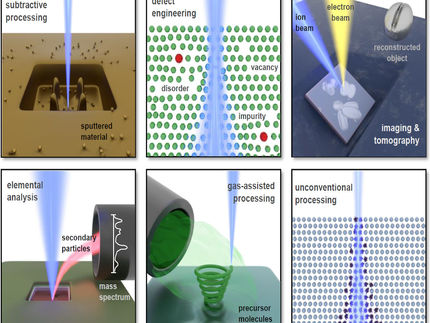Inion Signs Three-Year Development Agreement with University of Cambridge
Collaboration with Medical Materials Group to extend next-generation bioactive materials platform
Inion has entered into a three-year collaboration agreement with The Cambridge Centre for Medical Materials at the University of Cambridge Department of Materials Science & Metallurgy. The collaboration will focus on developing a new medical materials platform combining the proprietary Inion Optima[TM] biodegradable polymers with nano-phase bioactive ceramics under development at the University.
These new Biodegradable Bioactive Nano Composite (BBNC) materials are complementary to Inion's own Optima PLUS[TM] bioactive platform in development, which combines Inion Optima[TM] polymers with N-methyl-pyrollidone (NMP). In time it is expected that both platforms will be used to manufacture innovative medical fixation devices for a broad range of clinical applications.
The Cambridge Centre for Medical Materials (CCMM) is world-renowned in the field of innovative medical materials. The centre was set up in 2000 by Prof. William Bonfield, at the University of Cambridge, Department of Materials Science and Metallurgy, and has strong links with the prestigious Orthopaedic Research Unit, headed by Prof. Neil Rushton, Professor of Orthopaedics at Addenbrooke's Hospital.
The co-directors of CCMM, Dr Serena Best and Dr Ruth Cameron, and their research team are among the most highly regarded in the field of therapeutic materials, and the group's research has pioneered the development of bioactive technologies to promote tissue healing.
Inion will make a small financial contribution to the collaboration and has taken a non-exclusive, non-royalty bearing licence for commercialising any resulting products. The Company has an option to make the licence exclusive in return for making royalty payments on future product sales. The University of Cambridge will retain intellectual property rights to the use of the technology it is contributing to this collaboration.
Most read news
Other news from the department science

Get the life science industry in your inbox
By submitting this form you agree that LUMITOS AG will send you the newsletter(s) selected above by email. Your data will not be passed on to third parties. Your data will be stored and processed in accordance with our data protection regulations. LUMITOS may contact you by email for the purpose of advertising or market and opinion surveys. You can revoke your consent at any time without giving reasons to LUMITOS AG, Ernst-Augustin-Str. 2, 12489 Berlin, Germany or by e-mail at revoke@lumitos.com with effect for the future. In addition, each email contains a link to unsubscribe from the corresponding newsletter.




















































